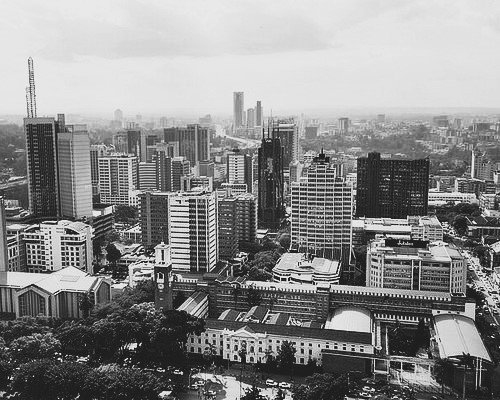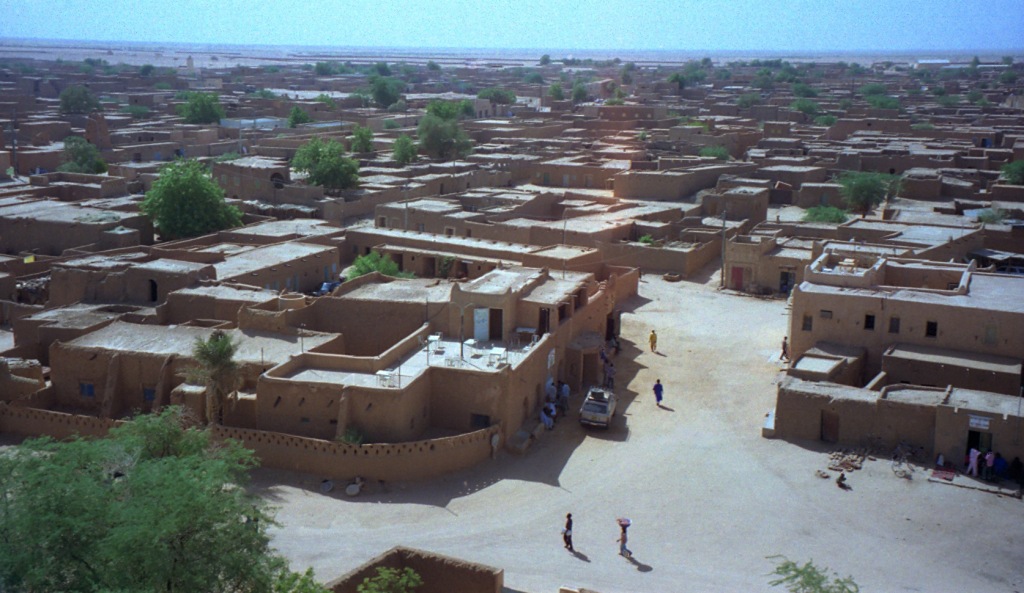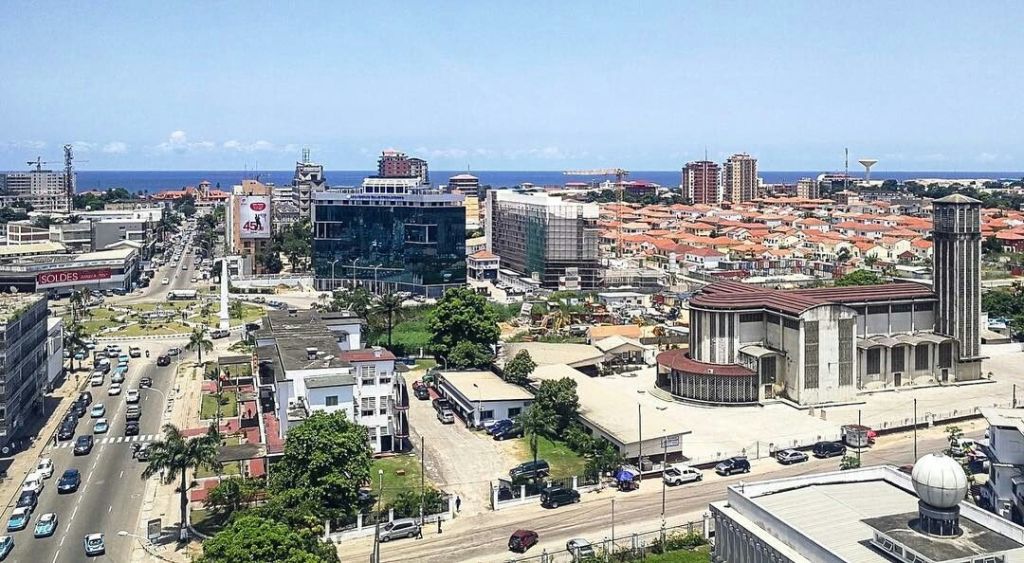
Mine near Arlit
By Samson Mawulolo Ahlijah
Anyone visiting Niger is at first shocked by the permanent contrast. With the River Niger running through its length and breadth, Niger is one of those African countries that offers a strange spectacle in which modernity and tradition seem to blend, attract and repel each other. Between the presence of camels in the middle of traffic and the traffic jams caused by convoys of donkeys in the capital Niamey, Niger has no shortage of unforgettable memories for its visitors.
The country’s climate is also worth mentioning. While the thermometer easily climbs to 50 degrees Celsius from February onwards, it can drop to 10 degrees Celsius during December and the harmattan period. This country, once inhabited by dinosaurs, whose reconstructed skeletons can be seen in the Niamey museum, is now largely covered by the Sahara desert, with wide temperature variations.
In many economic reports, Niger is presented as one of the poorest countries in the world, if not the poorest. Yet in Agadez, Tahoua, Niamey and on the streets of Maradi and Zinder, luxury vehicles costing tens of thousands of euros are on the road. While this contrast raises the question of the value of statistics and data from Africa, it is not the subject of this article.
France, Niger’s former colonial power
Although the figures show Niger to be a poor country, its subsoil is incredibly rich, attracting the covetousness of the world’s powers. A former French colony, Niger began exporting uranium to the former metropolis shortly after independence. While Niger’s uranium lit up French homes and produced enough energy to keep French industry growing, Niger’s communities were plunged into darkness. Even today, the country has one of the lowest electrification rates in the world. Depending on the data, the rate is between 18% and 25%.
This situation, perceived as a French stranglehold on the country’s wealth, has fuelled a great deal of resentment. In the 1990s, during demonstrations in favour of a multi-party system, a number of Nigerien politicians did not hesitate to attack the former colonial power, thereby winning the support of part of the population. While this did not put an end to the French presence in the country, resentment has not waned.
In February 2021, Mohamed Bazoum, an ally of France and the West, won the presidential election in troubled circumstances. The ballot was marred by violence, and there were several reports of vote-buying and vote-rigging. As soon as the results were announced, the capital Niamey and several other towns went up in flames. In the aftermath, several opponents were arrested. The international community, anxious to protect its interests, decided to recognise the election results. Mohamed Bazoum was sworn in in April 2021.

Le président Bazoum à l’Assemblée générale des Nations unies en 2022.
He promises to fight corruption and is undertaking a number of social transformation projects. To combat terrorist groups affiliated to al-Qaeda and the Islamic State in the Great Sahara (EIGS), Bazoum chose a questionable approach. He refused to cooperate with the Burkinabe and Malian juntas and, despite the opposition of a large part of the population, decided to welcome French military troops onto his territory. At the same time, it negotiated local ceasefire agreements with jihadist groups.
In the early hours of 26 July 2023, Mohamed Bazoum was taken prisoner by members of the presidential guard on the orders of General Tiani. The ensuing period of confusion ended late that night with the announcement of the coup d’état. A few days later, General Tiani officially took power and decided to break off military and diplomatic cooperation with France. After a tug-of-war, the French military left the country and the ambassador was expelled.
So what happened to the uranium? Well, after a long period of suspension, Orano mining (formerly Areva) resumed mining operations in the Agadez region. Which just goes to show that business and trade relations are always a priority.
The American presence
Situated in the centre of North and West Africa, Niger is a transit point for migrants seeking a better life on the other side of the Mediterranean. Illicit goods such as drugs also pass through Niger to be sold in Libya. These various criminal activities (trafficking in migrants and drugs) fuel the terrorist groups that have been operating in the country since the fall of Muammar Gaddafi. It was to combat these groups, which threaten the internal security of the United States, that the Pentagon decided to strengthen its military presence in Niger.
To begin with, Washington has sent a number of special forces elements and military instructors to the country. To help the Nigerien armed forces combat the jihadist insurgents, the United States donated a number of latest-generation military equipment items to the Nigerien General Staff. The US military presence was soon reinforced. 100 million was spent on building an air base in the town of Agadez. According to several security sources, the United States also has a secret base directly controlled by the CIA in the town of Dirkou in the far north of the country. It is from this base that armed drones are launched to attack jihadist groups based in Libya.
On the eve of the coup d’état of 26 July 2023, the United States had 1,100 soldiers on Nigerien territory. An ally of President Bazoum, who incidentally was on the verge of normalising Niger’s relations with Israel, Washington preferred to play a balancing act. While demanding the release of the deposed president and a return to democracy, the United States maintained a strong dialogue with the putschists.
This idyllic relationship suddenly came to an end on 16 March 2024, when the ruling military decided to terminate the security cooperation agreement with the United States. Too used to behaving like masters of the world, the United States had not bothered to sign a proper military cooperation agreement with Niger before deploying its troops in the country and building a military base there. They would simply have given a verbal warning to the authorities at the time. This announcement came as a surprise to many analysts, as resentment towards Uncle Sam’s country had never before manifested itself in Niger.
The causes of the rift between the two former partners are complex. A few days before Niamey announced its decision to break away, a high-ranking American delegation was in Niger to warn the military authorities against closer ties with Iran and Russia. For the new masters of Niger, the United States had shown condescension and paternalism.
Niamey’s position, although shocking, is understandable. The United States has never financed an electrification project in the country. For years, UsAid has confined itself to assistance projects that are incapable of breaking the cycle of underdevelopment. So when Tehran offers high-powered generators to make up for the energy shortfall, it’s hard to say no, even if the quid pro quo would probably be a few kilos of uranium. What’s more, American troops have collaborated little or hardly at all with Niger’s military in recent years on the battlefields. For some of the Nigerien general staff, the Russian partnership, which has already proved its worth in Mali and Burkina Faso, will give them more leverage against the insurgents. The United States, initially hesitant, finally agreed to withdraw its troops from Niger. Since 23 April 2024, discussions have been underway between the two parties to determine a timetable for the withdrawal.
The rise of Russia in Niger
After ousting France and the United States, Niger seems to have found in Russia the ally it believes it needs to restore security in the Sahel. On 10 April 2024, around a hundred Russian military instructors arrived in Niamey with military equipment. They belong to the Africa Corps and are to provide the country with an anti-aircraft surveillance system. While this partnership is strongly criticised by Westerners, who regularly point the finger at the alleged abuses committed by troops of the former Russian Wagner militia in Mali and the Central African Republic, it is supported by a large part of the population of Niger. Admittedly, Russia is an imperialist power like any other, but it has the advantage of not having got its hands too dirty in Africa, unlike France or the United States.
During the Cold War, the USSR certainly helped pro-Communist leaders to take power, but it never planned or orchestrated the assassination of a leader who was not sympathetic to its cause. Unlike France, whose involvement in the assassinations of Sylvanus Olympio, Thomas Sankara and Ruben Um Nyobé, to name but a few, is well known, Russia has often shown a degree of restraint on the continent. As for the United States, it did not hesitate to eliminate Patrice Emery Lumumba or to support the coup d’état against Kwame Nkrumah, the father of political pan-Africanism.
Whether we like it or not, Russia has a certain moral credibility in Africa and among Africans, unlike the United States, France and other Western powers. It is on this moral credit that the current Russian President Vladimir Putin is capitalising to win over a large part of Africa’s youth. Will Russian military cooperation put an end to the jihadist threat in Niger and the Sahel? Only time will tell.
What about Aliens?

Depending on the source, between 97% and 99% of the population of Niger is Muslim. The Islam practised in Niger remains very conservative. If not rigorous, Niger is an obsequious country. Many things are tolerated as long as they remain hidden. In broad daylight, the entire population is encouraged to behave like a good Muslim.
The weight of religion in Muslim society has had two major consequences. The first is the low school enrolment rate. Secondly, Niger remains a country where critical thinking is not really approved. For the average Nigerien, unexplained aerial phenomena (UAPs) or UFOs are a strange subject. The few who have heard of these phenomena or witnessed them in the desert regions of the country are convinced that they are manifestations of the Djinns or the works of the Sheitan: the Devil.
In certain Islamic traditions, the Djinn, a being of fire, resides in desert areas. And it is precisely in the desert region of Agadez that UFO sightings have been reported in Niger. What’s more, it’s in this region that the majority of the country’s uranium mines are located, and UFOs have been spotted on numerous occasions over these mining areas. Testimonies of this type abound in the Agadez region. The locals, however, do not seem to be aware that these strange objects they are seeing probably come from other worlds, whether planets or other dimensions. The alien is the absolute stranger, taboo or unthought of.
So what do the aliens want in Niger? The answer to this question remains difficult to give. The occupants of these spaceships have never made their intentions clear. However, several hypotheses can be put forward.
The first is that the UFOs (the extraterrestrials) are monitoring the areas where uranium is mined to prevent it from getting out of control. These beings would be aware of the dangers of manipulating this energy and would be ready to intervene to prevent humans from doing anything stupid.
The other hypothesis is that, thanks to an unknown technology, UFOs are able to refuel by flying over uranium mines and capturing the radiation emitted by the ore.
It is not yet possible to confirm or refute any of these hypotheses. And there may be other reasons as well. UFOs have always shown a real interest in the regions hosting uranium mines on the continent. For example, on 29 March 1952, two unidentified disc-shaped flying machines were observed over the present-day city of Lubumbashi in the DRC. The region where the city is located is home to uranium mines. The aircraft constantly changed position and flew at breakneck speed.
In 2021, Stéphane Royer and Didier Gomez published the book ‘UFOs and nuclear power – Are we under surveillance’, in which they point out that everywhere in the world where nuclear sites exist, unknown luminous phenomena are associated with them, significantly interfering with equipment, jamming radars or inexplicably deactivating nuclear charges.

On the night of 31 December 2019 to 1 January 2020, while humanity was in the midst of the fight against the coronavirus, an unidentified aircraft crashed between Tanout (Zinder region) and Aderbissinat, a town in the Agadez region. The crash occurred at around 10pm, and a deafening noise followed by a bright light was reported. The following day, nomadic tribes reported discovering an unidentified metal object that had fallen not far from their camp. Nigerien soldiers went to the scene. The results of the investigation have not been published.
As far as Niger is concerned, while American and French planes can no longer fly over the country’s airspace, extraterrestrials will surely continue to do so. For the moment, the new military authorities have not banned their presence…




Laisser un commentaire